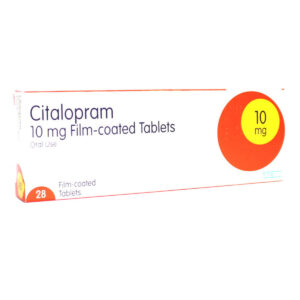Duloxetine Capsules
Duloxetine Capsules are available in 6 strengths
20mg, 30mg, 40mg, 60mg, 90mg & 120mg
Duloxetine Capsules are available in 6 strengths
- Duloxetine 20mg Capsules
- Duloxetine 30mg Capsules
- Duloxetine 40mg Capsules
- Duloxetine 60mg Capsules
- Duloxetine 90mg Capsules
- Duloxetine 120mg Capsules
£6.50 – £26.45
CompareCompare- Duloxetine 20mg Capsules
- Duloxetine 30mg Capsules
- Duloxetine 40mg Capsules
- Duloxetine 60mg Capsules
- Duloxetine 90mg Capsules
- Duloxetine 120mg Capsules
- Description
- Additional Information
- Brand
- How To Use
- Product Details
- Side Effects
- Ingredients
- How to Store
- Patient Information leaflet
- Reviews (0)
- Questions & Answers (1)
Duloxetine Capsules
Duloxetine Capsules – Emotional Well-being and Pain Relief
Experience the ultimate relief and revitalization with our game changing Duloxetine Capsules. This remarkable product contains duloxetine, an active substance that targets specific conditions affecting adults by enhancing serotonin and noradrenaline levels in their nervous system. With its tailored approach this medication offers a unique solution for those seeking true healing from various health issues. Discover what makes it so special today!
Depression can be a heavy burden to bear – but our Duloxetine Capsules offer hope for those struggling with this condition. These medications provide relief from chronic sadness and help restore joy in life once again. Similarly we understand how difficult it is living with generalised anxiety disorder (GAD) which is why we’ve formulated these capsules specifically designed to soothe nerves and promote calmness throughout daily activities.
For those dealing with diabetic neuropathic pain our specialized formula offers relief from the agonizing symptoms often described as burning, stabbing or shooting sensations. With this breakthrough treatment you can bid farewell to discomfort and reclaim your ability to enjoy life’s pleasures once again. Embrace a newfound sense of freedom today!
Duloxetine has been known to produce significant improvements in depression and anxiety within just two weeks of starting treatment. Although it may take a bit longer for those suffering from diabetic neuropathic pain the promise of relief remains constant. With its quick acting nature this medication offers hope where there was none before.
We understand that finding relief from symptoms can be challenging. If you haven’t experienced the desired effects within an expected time frame while taking Duloxetine Capsules please don’t hesitate to consult with your doctor. Our goal is empowerment through personalized treatment plans tailored by experts like yourself who know what works best for each individual patient on their journey towards healing and wellness.
Our commitment to your wellbeing doesn’t end with just prescribing Duloxetine. We understand that maintaining balance is crucial which is why we recommend continued usage of this medication as advised by your doctor for prevention against any recurrence of depression, anxiety or diabetic neuropathic pain.
At our online store we understand how important it is to prioritize your health and well being. Thats why we source only the highest quality Duloxetine Capsules from trusted suppliers that meet rigorous safety standards. With us you can rest easy knowing that every purchase will make a meaningful difference in improving your overall quality of life. We’re here for you!
Take control of your emotional and physical well being today by choosing “Duloxetine Capsules” as an ally in conquering depression, anxiety or diabetic neuropathic pain. With each capsule you take reclaiming your life becomes easier than ever before. Don’t wait any longer – start feeling better now!
As a precautionary measure, it is essential to consult with an experienced healthcare professional before using any medication including Duloxetine Capsules.
Duloxetine Capsules are available in 6 strengths
- Duloxetine 20mg Capsules
- Duloxetine 30mg Capsules
- Duloxetine 40mg Capsules
- Duloxetine 60mg Capsules
- Duloxetine 90mg Capsules
- Duloxetine 120mg Capsules
Duloxetine Capsules Reviews
After using Duloxetine Capsules, it’s helpful to let others know about your experience. Reviews of an item help other users know that medicines received have helped the condition it is claimed for, how well the treatment worked or any issues to be aware of. We invite our users to leave a review of both their treatment and of the service provided. Click on the reviews tab to see if there has been feedback on this item.
What is the price of Duloxetine Capsules?
The price of Duloxetine Capsules starts from £6.50
Where can you buy Duloxetine Capsules?
You can buy Duloxetine Capsules at Dock Pharmacy Essex UK, UK Online Pharmacy.
Can you buy Duloxetine Capsules Over the counter?
Duloxetine Capsules is not available to buy over the counter. You need a prescription to buy Duloxetine Capsules
| Brand | |
|---|---|
| Strength | 20mg Capsules, 28 Capsules, 30mg Capsules, 28 Capsules, 40mg Capsules, 56 Capsule, 60mg Capsules, 28 Capsule, 90mg Capsules, 28 Capsule, 120mg Capsules, 28 Capsule |
Brand
Duloxetine
How To Use
How to take Duloxetine
Always take this medicine exactly as your doctor or pharmacist has told you.
Check with your doctor or pharmacist if you are not sure.
Duloxetine is for oral use.
You should swallow your capsule whole with a drink of water.
For depression and diabetic neuropathic pain:
The usual dose of Duloxetine is 60 mg once a day, but your doctor will prescribe the dose that is right for you.
For generalised anxiety disorder:
The usual starting dose of Duloxetine is 30 mg once a day after which most patients will receive 60 mg once a day, but your doctor will prescribe the dose that is right for you. The dose may be adjusted up to 120 mg a day based on your response to Duloxetine.
To help you remember to take Duloxetine, you may find it easier to take it at the same times every day. Talk with your doctor about how long you should keep taking Duloxetine. Do not stop taking Duloxetine, or change your dose, without talking to your doctor. Treating your disorder properly is important to help you get better. If it is not treated, your condition may not go away and may become more serious and difficult to treat.
Product Details
What you need to know before you take Duloxetine
DO NOT take Duloxetine if you: – are allergic to duloxetine or any of the other ingredients of this medicine (listed in section 6) – have liver disease – have severe kidney disease – are taking or have taken within the last 14 days, another medicine known as a monoamine oxidase inhibitor (MAOI) (see ‘Other medicines and Duloxetine’) – are taking fluvoxamine which is usually used to treat depression, ciprofloxacin or enoxacin which are used to treat some infections – are taking other medicines containing duloxetine (see ‘Other medicines and Duloxetine’) Talk to your doctor if you have high blood pressure or heart disease. Your doctor will tell you if you should be taking duloxetine. Warnings and precautions The following are reasons why duloxetine may not be suitable for you. Talk to your doctor before you take Duloxetine if you: – are taking other medicines to treat depression (see ‘Other medicines and Duloxetine’) – are taking St. John’s Wort, a herbal treatment (Hypericum perforatum) – have kidney disease – have had seizures (fits) – have had mania – suffer from bipolar disorder – have eye problems, such as certain kinds of glaucoma (increased pressure in the eye) – have a history of bleeding disorders (tendency to develop bruises), especially if you are pregnant (see ‘Pregnancy and breast-feeding‘) – are at risk of low sodium levels (for example if you are taking diuretics, especially if you are elderly) – are currently being treated with another medicine which may cause liver damage – are taking other medicines containing duloxetine (see ‘Other medicines and Duloxetine’) – are taking buprenorphine or/and opioids, the use of theses medicines together with Duloxetine can lead to serotonin syndrome, a potentially-life threatening condition (see ‘Other medicines and Duloxetine’). Duloxetine may cause a sensation of restlessness or an inability to sit or stand still. You should tell your doctor if this happens to you. Medicines like Duloxetine (so called SSRIs/SNRIs) may cause symptoms of sexual dysfunction (see section 4). In some cases, these symptoms have continued after stopping treatment. Thoughts of suicide and worsening of your depression or anxiety disorder If you are depressed and/or have anxiety disorders you can sometimes have thoughts of harming or killing yourself. These may be increased when first starting antidepressants, since these medicines all take time to work, usually about two weeks but sometimes longer. You may be more likely to think like this if you: – have previously had thoughts about killing or harming yourself – are a young adult. Information from clinical trials has shown an increased risk of suicidal behaviour in adults aged less than 25 years with psychiatric conditions who were treated with an antidepressant If you have thoughts of harming or killing yourself at any time, contact your doctor or go to a hospital straight away. You may find it helpful to tell a relative or close friend that you are depressed or have an anxiety disorder, and ask them to read this leaflet. You might ask them to tell you if they think your depression or anxiety is getting worse, or if they are worried about changes in your behaviour. Children and adolescents under 18 years of age Duloxetine should normally not be used for children and adolescents under 18 years. Also, you should know that patients under 18 have an increased risk of side-effects such as suicide attempt, suicidal thoughts and hostility (predominantly aggression, oppositional behaviour and anger) when they take this class of medicines. Despite this, your doctor may prescribe Duloxetine for patients under 18 because he/she decides that this is in their best interests. If your doctor has prescribed Duloxetine for a patient under 18 and you want to discuss this, please go back to your doctor. You should inform your doctor if any of the symptoms listed above develop or worsen when patients under 18 are taking Duloxetine. Also, the long-term safety effects concerning growth, maturation, and cognitive and behavioural development of duloxetine in this age group have not yet been demonstrated. Other medicines and Duloxetine Tell your doctor or pharmacist if you are taking, have recently taken or might take any other medicines, including medicines obtained without a prescription. The main ingredient of this medicine, duloxetine, is used in other medicines for other conditions: • diabetic neuropathic pain, depression, anxiety and urinary incontinence Using more than one of these medicines at the same time should be avoided. Check with your doctor if you are already taking other medicines containing duloxetine. Your doctor should decide whether you can take Duloxetine with other medicines. Do not start or stop taking any medicines, including those bought without a prescription and herbal remedies, before checking with your doctor. You should also tell your doctor if you are taking any of the following: Monoamine oxidase inhibitors (MAOIs): You should not take Duloxetine if you are taking, or have recently taken (within the last 14 days) another antidepressant medicine called a monoamine oxidase inhibitor (MAOI). Examples of MAOIs include moclobemide (an antidepressant) and linezolid (an antibiotic). Taking a MAOI together with many prescription medicines, including duloxetine, can cause serious or even life-threatening side effects. You must wait at least 14 days after you have stopped taking an MAOI before you can take Duloxetine. Also, you need to wait at least 5 days after you stop taking Duloxetine before you take a MAOI. Medicines that cause sleepiness: These include medicines prescribed by your doctor including benzodiazepines, strong painkillers, antipsychotics, phenobarbital and antihistamines. Medicines that increase the level of serotonin: Triptans, tramadol, tryptophan, SSRIs (such as paroxetine and fluoxetine), SNRIs (such as venlafaxine), tricyclic antidepressants (such as clomipramine, amitriptyline), pethidine, St John’s Wort and MAOIs (such as moclobemide and linezolid). These medicines increase the risk of side effects; if you get any unusual symptom taking any of these medicines together with duloxetine, you should see your doctor. Oral anticoagulants or antiplatelet agents: Medicines which thin the blood or prevent the blood from clotting. These medicines might increase the risk of bleeding. Buprenorphine or/and opioids medicines: these medicines may interact with Duloxetine and you may experience symptoms such as involuntary, rhythmic contractions of muscles, including the muscles that control movement of the eye, agitation, hallucinations, coma, excessive sweating, tremor, exaggeration of reflexes, increased muscle tension, body temperature above 38ºC. Contact your doctor when experiencing such symptoms. Duloxetine with food, drink and alcohol Duloxetine may be taken with or without food. Care should be taken if you drink alcohol while you are being treated with Duloxetine. Pregnancy and breast-feeding If you are pregnant or breast-feeding, think you may be pregnant or are planning to have a baby, ask your doctor or pharmacist for advice before taking this medicine. • Tell your doctor if you become pregnant, or you are trying to become pregnant, while you are taking Duloxetine. You should use duloxetine only after discussing the potential benefits and any potential risks to your unborn child with your doctor. • Make sure your midwife and/or doctor knows you are on Duloxetine. When taken during pregnancy, similar drugs (SSRIs) may increase the risk of a serious condition in babies, called persistent pulmonary hypertension of the newborn (PPHN), making the baby breathe faster and appear bluish. These symptoms usually begin during the first 24 hours after the baby is born. If this happens to your baby you should contact your midwife and/or doctor immediately. • If you take Duloxetine near the end of your pregnancy, your baby might have some symptoms when it is born. These usually begin at birth or within a few days of your baby being born. These symptoms may include floppy muscles, trembling, jitteriness, not feeding properly, trouble with breathing and fits. If your baby has any of these symptoms when it is born, or you are concerned about your baby’s health, contact your doctor or midwife who will be able to advise you. • If you take Duloxetine near the end of your pregnancy there is an increased risk of excessive vaginal bleeding shortly after birth, especially if you have a history of bleeding disorders. Your doctor or midwife should be aware that you are taking duloxetine so they can advise you. • Available data from the use of Duloxetine during the first three months of pregnancy do not show an increased risk of overall birth defects in general in the child. If Duloxetine is taken during the second half of pregnancy, there may be an increased risk that the infant will be born early (6 additional premature infants for every 100 women who take Duloxetine in the second half of pregnancy), mostly between weeks 35 and 36 of pregnancy. • Tell your doctor if you are breast-feeding. The use of Duloxetine while breast-feeding is not recommended. You should ask your doctor or pharmacist for advice. Driving and using machines Duloxetine may make you feel sleepy or dizzy. Do not drive or use any tools or machines until you know how Duloxetine affects you. Duloxetine contains sucrose Duloxetine contains sucrose. If you have been told by your doctor that you have an intolerance to some sugars, contact your doctor before taking this medicinal product. Duloxetine contains sodium This medicine contains less than 1 mmol sodium (23 mg) per capsule, that is to say essentially ‘sodium-free’.
Side Effects
Possible side effects
Like all medicines, this medicine can cause side effects, although not everybody gets them. These effects are normally mild to moderate and often disappear after a few weeks. Very common side effects (may affect more than 1 in 10 people) • headache, feeling sleepy • feeling sick (nausea), dry mouth Common side effects (may affect up to 1 in 10 people) • lack of appetite • trouble sleeping, feeling agitated, less sex drive, anxiety, difficulty or failure to experience orgasm, unusual dreams • dizziness, feeling sluggish, tremor, numbness, including numbness, pricking or tingling of the skin • blurred eyesight • tinnitus (hearing sound in the ear when there is no external sound) • feeling the heart pumping in the chest • increased blood pressure, flushing • increased yawning • constipation, diarrhoea, stomach pain, being sick (vomiting), heartburn or indigestion, breaking wind • increased sweating, (itchy) rash • muscle pain, muscle spasm • painful urination, frequent urination • problems getting an erection, changes in ejaculation • falls (mostly in elderly people), fatigue • weight loss Children and adolescents under 18 years of age with depression treated with this medicine had some weight loss when they first start taking this medicine. Weight increased to match other children and adolescents of their age and sex after 6 months of treatment. Uncommon side effects (may affect up to 1 in 100 people) • throat inflammation that causes a hoarse voice • suicidal thoughts, difficulty sleeping, grinding or clenching the teeth, feeling disorientated, lack of motivation • sudden involuntary jerks or twitches of the muscles, sensation of restlessness or an inability to sit or stand still, feeling nervous, difficulty concentrating, changes in sense of taste, difficulty controlling movement e.g. lack of coordination or involuntary movements of the muscles, restless legs syndrome, poor sleep quality • large pupils (the dark centre of the eye), problems with eyesight • feeling of dizziness or “spinning” (vertigo), ear pain • fast and/or irregular heart beat • fainting, dizziness, lightheadedness or fainting on standing up, cold fingers and/or toes • throat tightness, nose bleeds • vomiting blood, or black tarry stools (faeces), gastroenteritis, burping, difficulty swallowing • inflammation of the liver that may cause abdominal pain and yellowing of the skin or whites of the eyes • night sweats, hives, cold sweats, sensitivity to sunlight, increased tendency to bruise • muscle tightness, muscle twitching • difficulty or inability to pass urine, difficulty to start urinating, needing to pass urine during the night, needing to pass more urine than normal, having a decreased urine flow • abnormal vaginal bleeding, abnormal periods, including heavy, painful, irregular or prolonged periods, unusually light or missed periods, pain in the testicles or scrotum • chest pain, feeling cold, thirst, shivering, feeling hot, abnormal gait • weight gain • Duloxetine may cause effects that you may not be aware of, such as increases in liver enzymes or blood levels of potassium, creatine phosphokinase, sugar, or cholesterol Rare side effects (may affect up to 1 in 1000 people) • serious allergic reaction which causes difficulty in breathing or dizziness with swollen tongue or lips, allergic reactions • decreased thyroid gland activity which can cause tiredness or weight gain • dehydration, low levels of sodium in the blood (mostly in elderly people; the symptoms may include feeling dizzy, weak, confused, sleepy or very tired, or feeling or being sick, more serious symptoms are fainting, fits or falls), syndrome of inappropriate secretion of anti-diuretic hormone (SIADH) • suicidal behaviour, mania (over activity, racing thoughts and decreased need for sleep), hallucinations, aggression and anger • “Serotonin syndrome” (a rare reaction which may cause feelings of great happiness, drowsiness, clumsiness, restlessness, feeling of being drunk, fever, sweating or rigid muscles), fits • increased pressure in the eye (glaucoma) • coughing, wheezing and shortness of breath which may be accompanied by a high temperature • inflammation of the mouth, passing bright red blood in your stools, bad breath, inflammation of the large intestine (leading to diarrhoea) • liver failure, yellowing of the skin or whites of the eyes (jaundice) • Stevens-Johnson syndrome (serious illness with blistering of the skin, mouth, eyes and genitals), serious allergic reaction which causes swelling of the face or throat (angioedema) • contraction of the jaw muscle • abnormal urine odour • menopausal symptoms, abnormal production of breast milk in men or women • excessive vaginal bleeding shortly after birth (postpartum haemorrhage) Very rare side effects (may affect up to 1 in 10,000 people) • inflammation of the blood vessels in the skin (cutaneous vasculitis) Reporting of side effects If you get any side effects, talk to your doctor or pharmacist. This includes any possible side effects not listed in this leaflet. You can also report side effects directly via the Yellow Card Scheme at: www.mhra.gov.uk/yellowcard Or search for MHRA Yellow Card in the Google Play or Apple App Store. By reporting side effects you can help provide more information on the safety of this medicine
Ingredients
What Duloxetine contains
The active substance is duloxetine.
Each capsule contains 20mg, 30mg, 40mg, 90mg, 60mg, 120mg of duloxetine (as hydrochloride).
How to Store
How to store Duloxetine
Keep this medicine out of the sight and reach of children. Do not use this medicine after the expiry date which is stated on the carton and blister after EXP. The expiry date refers to the last day of that month. This medicine does not require any special storage conditions. Do not throw away any medicines via wastewater or household waste. Ask your pharmacist how to throw away medicines you no longer use. These measures will help to protect the environment.
Patient Information leaflet
Click here for the Patient Information leaflet
Please read before using the product
Only logged in customers who have purchased this product may leave a review.
Questions and answers of the customers
You Might Also Like
Paroxetine Tablets is available in 3 strengths
- Paroxetine 10mg Tablets
- Paroxetine 20mg Tablets
- Paroxetine 30mg Tablets
£5.00
- Availability: in stock
Citalopram 10mg Tablets, 28 Tablets Looking for a powerful antidepressant that can help you recover from your illness? Look no further than Citalopram 10mg Tablets! These tablets contain the active ingredient citalopram, which is part of a group of drugs known as Selective Serotonin Reuptake Inhibitors (SSRIs). SSRIs work by correcting chemical imbalances in the brain […]
Learn More£5.00
- Availability: in stock
Escitalopram Tablets are available in 3 strengths:
- Escitalopram 5mg Tablets
- Escitalopram 10mg Tablets
- Escitalopram 20mg Tablets
£5.00
- Availability: in stock
£4.50 – £57.20
£4.50 – £57.20
- Availability: in stock
Other Products From This Seller
Original price was: £34.99.£24.95Current price is: £24.95.
Wahl Extreme Grip Beard Trimmer Precision Grooming with Comfort Grip and Adjustable Cutting Lengths Take Control of Your Grooming with the Wahl Extreme Grip Beard Trimmer Transform your grooming routine with the Wahl Extreme Grip Beard Trimmer, designed for precision, comfort, and versatility. Whether you’re sculpting a sharp beard line, maintaining stubble, or styling longer […]
Learn MoreOriginal price was: £34.99.£24.95Current price is: £24.95.
- Availability: in stock
Original price was: £23.99.£17.95Current price is: £17.95.
WAHL Vogue Corded Hair Clipper for Men Professional Precision with Adjustable Taper Lever and High-Carbon Steel Blades Transform Your Grooming Routine with the WAHL Vogue Corded Hair Clipper for Men Elevate your grooming experience with the WAHL Vogue Corded Hair Clipper, a professional-grade grooming tool designed for men who value precision and performance. Whether you’re […]
Learn MoreOriginal price was: £23.99.£17.95Current price is: £17.95.
- Availability: in stock
Original price was: £30.00.£8.95Current price is: £8.95.
Wahl Peaky Blinders Beard Trimmer Gift Set Limited Edition Cordless Grooming Kit for Men Join the ranks of the Peaky Blinders with the Wahl Peaky Blinders Beard Trimmer Gift Set. This exclusive collaboration between Wahl and the iconic TV series offers a comprehensive grooming solution for the modern gentleman. Key Features: Rechargeable Cordless Trimmer: Equipped […]
Learn MoreOriginal price was: £30.00.£8.95Current price is: £8.95.
- Availability: in stock
Original price was: £54.63.£39.95Current price is: £39.95.
OMRON RS2 Wrist Blood Pressure Monitor Compact and Accurate BP Monitoring The OMRON RS2 Wrist Blood Pressure Monitor is a compact and user-friendly device designed for quick and accurate blood pressure and pulse rate measurements. Utilizing the oscillometric method, it ensures reliable readings with minimal user input. Key Features: Automatic Inflation: The device inflates the […]
Learn MoreOriginal price was: £54.63.£39.95Current price is: £39.95.
- Availability: in stock
Original price was: £69.99.£59.99Current price is: £59.99.
Omron M4 Intelli IT Blood Pressure Monitor Bluetooth-Enabled Upper Arm BP Monitor with Intelli Wrap Cuff The Omron M4 Intelli IT Blood Pressure Monitor is a clinically validated device designed for easy and accurate blood pressure monitoring at home. With Bluetooth connectivity, it seamlessly syncs your readings to the Omron Connect app, allowing you to […]
Learn MoreOriginal price was: £69.99.£59.99Current price is: £59.99.
- Availability: in stock
Original price was: £39.99.£33.95Current price is: £33.95.
Omron M2+ Upper Arm Blood Pressure Monitor The Omron M2+ Upper Arm Blood Pressure Monitor is a fully automatic device designed to provide quick and accurate blood pressure and pulse rate measurements. Utilizing the oscillometric method, it ensures reliable readings with minimal user input. Key Features: IntelliSense Technology: Automatically inflates the cuff to the ideal […]
Learn MoreOriginal price was: £39.99.£33.95Current price is: £33.95.
- Availability: in stock
Original price was: £19.99.£9.95Current price is: £9.95.
Ted Baker M Gift Set 30ml EDT Spray and 150ml Body Wash Experience the refined elegance of the Ted Baker M Gift Set, comprising a 30ml Eau de Toilette Spray and a 150ml Body Wash. This meticulously crafted set offers a harmonious blend of notes, encapsulating masculinity and sophistication. Ideal for gifting or personal indulgence, […]
Learn MoreOriginal price was: £19.99.£9.95Current price is: £9.95.
- Availability: in stock
Original price was: £33.00.£19.99Current price is: £19.99.
Iceberg Twice Pour Homme Eau de Toilette 125ml Gift Set Aromatic Fougère Fragrance for Men Discover the timeless elegance of Iceberg Twice Pour Homme Eau de Toilette 125ml Gift Set, a sophisticated aromatic fougère fragrance designed for the modern man. This exclusive gift set includes a 125ml Eau de Toilette, offering a complete scent experience […]
Learn MoreOriginal price was: £33.00.£19.99Current price is: £19.99.
- Availability: in stock
Original price was: £44.00.£28.95Current price is: £28.95.
Davidoff Cool Water Gift Set For Men, 2pc Gift set Dive into the invigorating essence of the ocean with the Davidoff Cool Water Gift Set for Men. This exclusive 2-piece set includes a 4.2 fl. oz. Eau de Toilette and a 2.5 fl. oz. After Shave Balm, offering a complete grooming experience that embodies freshness […]
Learn MoreOriginal price was: £44.00.£28.95Current price is: £28.95.
- Availability: in stock
Original price was: £19.95.£9.95Current price is: £9.95.
Ted Baker W Pink Gift Set 30ml EDT and 150ml Shower Gel Experience the elegance of Ted Baker W Pink Gift Set, comprising a 30ml Eau de Toilette and a 150ml Shower Gel. This exquisite set offers a harmonious blend of floral and woody notes, encapsulating femininity and sophistication. Ideal for gifting or personal indulgence, […]
Learn MoreOriginal price was: £19.95.£9.95Current price is: £9.95.
- Availability: in stock






















Reviews
There are no reviews yet